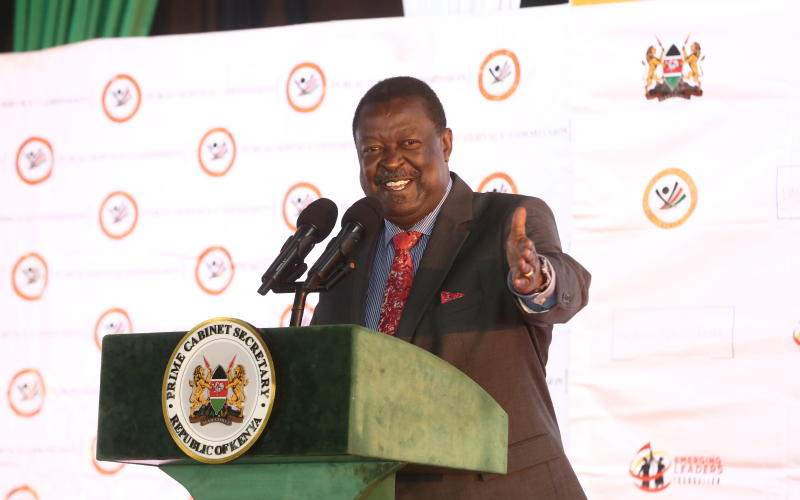×
The Standard e-Paper
Fearless, Trusted News

Prime CS Musalia Mudavadi. [Silas Otieno, Standard]
Prime Cabinet Secretary Musalia Mudavadi has urged scholars, researchers, and practitioners to accommodate the views and aspirations of locals for sustainable development.